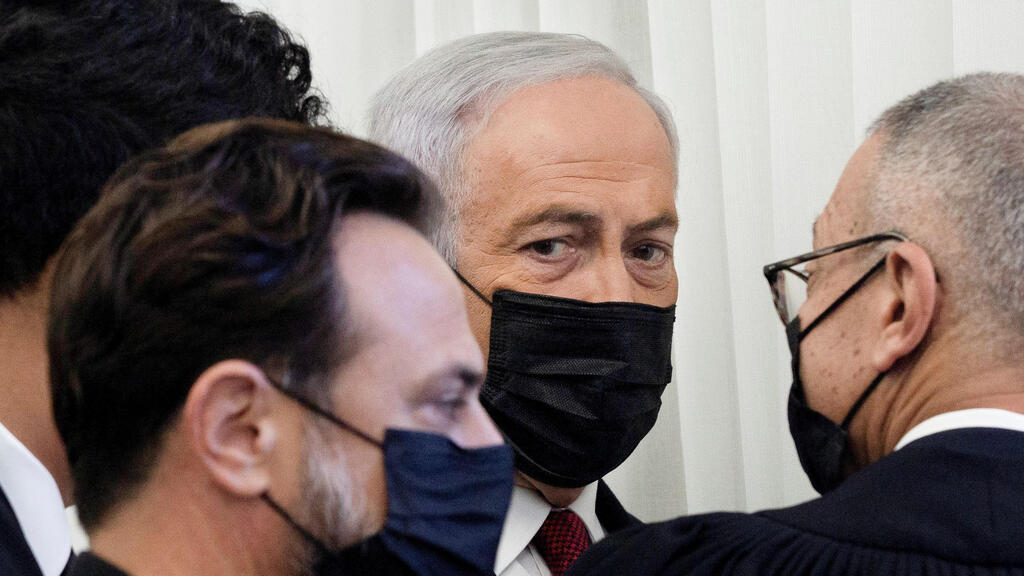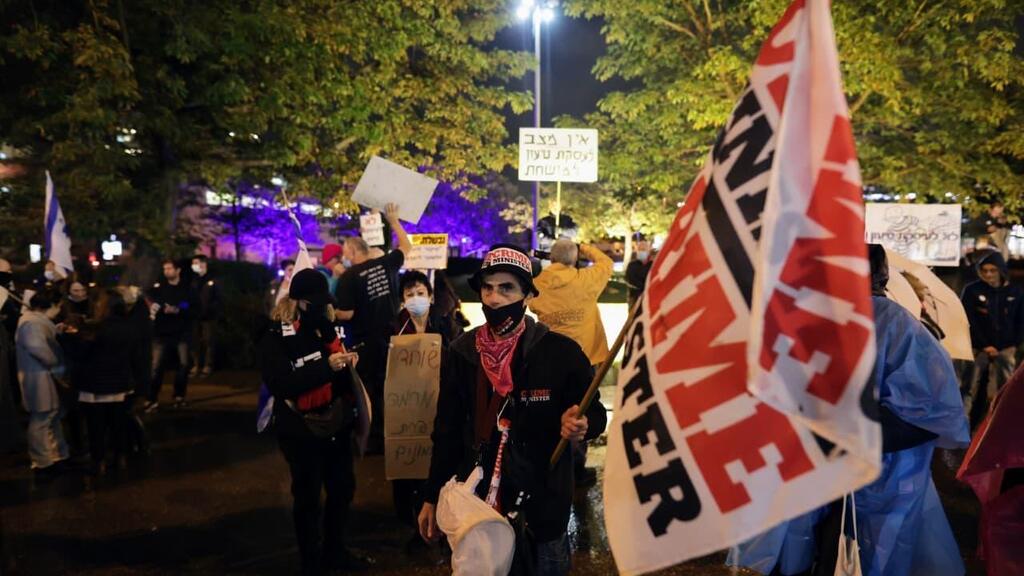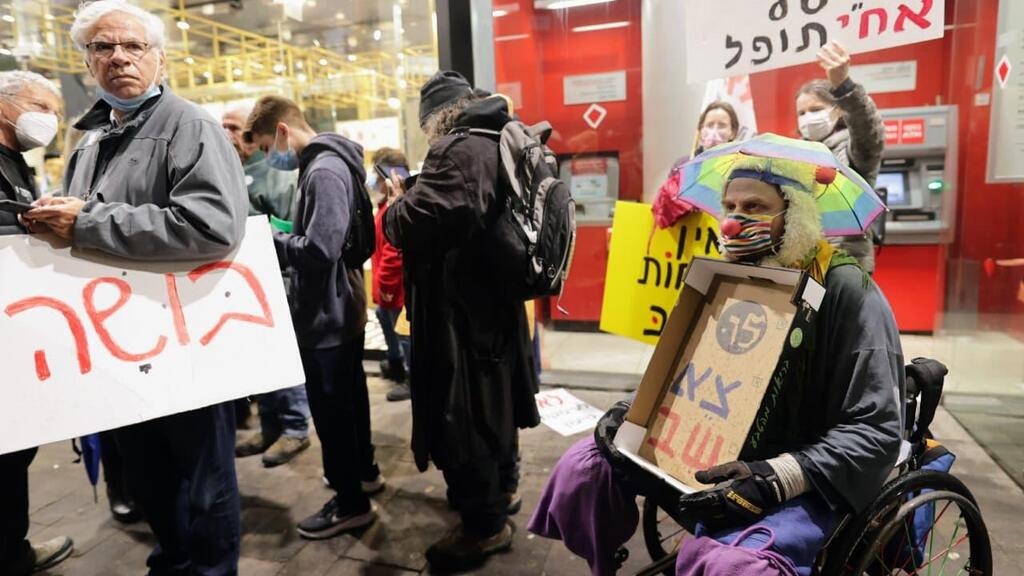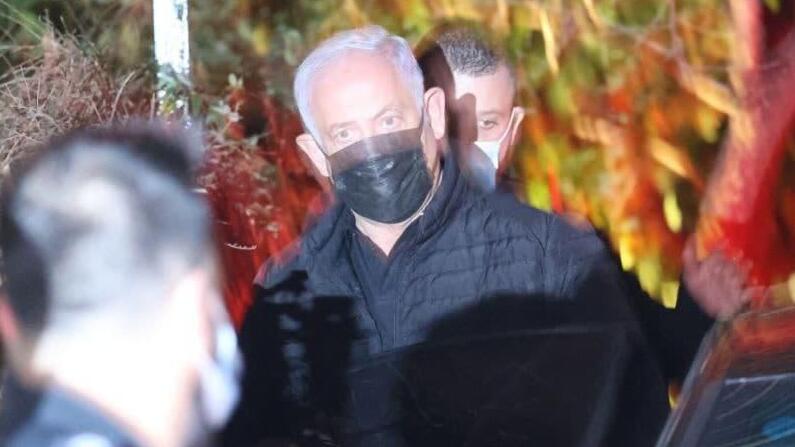Getting your Trinity Audio player ready...
The impending plea deal between former Prime Minister Benjamin Netanyahu and Attorney General Avichai Mandelblit makes a lot of sense.
One possible outcome of the trial - which would have admittedly lasted for a few more years - would have been Netanyahu's conviction on at least two of the three corruption charges, effectively barring him from political life for at least seven years.
6 View gallery


Former Prime Minister Benjamin Netanyahu and Attorney General Avichai Mandelblit
(Photo: Moti Kimchi, Alex Kolomoisky)
This would have been an acceptable outcome, but now that the plea deal is on the table, both sides would risk a lot by continuing with the trial.
Netanyahu risks being convicted of fraud, breach of trust and bribery, which will most likely lead to actual prison time.
The state risks a prolonged battle that will most likely find its way to the Supreme Court, and the continuation of the acidic political debate that permeates and gnaws at public’s trust in the justice system.
All in all, both sides are less than certain of the eventual outcome of a prolonged trial.
6 View gallery


Benjamin Netanyahu at the Jerusalem Magistrate Court for a hearing on the so-called Case 4000
(Photo: Reuters)
The public, meanwhile, is busy debating whether the plea deal will entail the disgrace pin that is the moral turpitude clause.
Such a debate is unnecessary. From the moment Netanyahu admits to the offenses of fraud and breach of trust, the moral turpitude clause will be evoked automatically, barring him from political life for the better part of a decade, whether by court or the Central Elections Committee.
The main question that should be on everybody’s mind is how will the two sides agree on the amended indictment, but this, too, is a solvable problem.
6 View gallery


People protesting against the plea deal with Netanyahu in front of Mandelblit's house
(Photo: Tal Shahar)
Given the circumstances, a plea deal is the obvious choice. But what is most obvious and impartial is not always right.
A plea deal of this kind with Netanyahu will only further erode the already-eroded foundation on which public’s trust rests.
Almost three years ago, I published an article in which I proposed Mandelblit reach a similar deal with then-prime minister.
Back then, there was no indictment yet, so the proposal was not for a plea deal but for a presidential pardon in exchange for his resignation and an admittance of guilt.
My biggest fear was that Netanyahu would do what he ended up doing: Leave nothing but scorched earth in his wake, create unprecedented internal division, and drag the country and its politics into a giant pot of intrigue and a sense of persecution.
6 View gallery


People protesting against the plea deal with Netanyahu in front of Mandelblit's house
(Photo: Tal Shahar)
The article was met with a variety of, sometimes toxic, responses from all across the political spectrum.
Netanyahu's opponents - those who smelt blood, who thought a revelation in the style of the Watergate affair was imminent, who believed the former premier was days away from shamefully marching into prison - believed my proposal was a sign of concession.
Netanyahu's proponents - those who believed that the affair would simply dissipate, those who failed to properly appreciate the intensity of the legal process and its profound effects on our politics - believed my proposal was a disgrace and a sham.
Back then, a deal would have spared Israel and its people the great divide in our society we are contending with now - thanks to Netanyahu.
6 View gallery


A protester against the plea deal holding a picture of former Prime Minister Benjamin Netanyahu and Attorney General Avichai Mandelblit
(Photo: Nadav Abas)
It would have spared Israel the four exhausting consecutive election rounds, as well as the prolonged public campaign that paints the justice system as a collaborator in a shadowy scheme to take down the government.
Now, a plea deal will leave all questions open.
The publicity of a trial, the need to reach some sort of truth, the sense of certainty an acquitted individual receives, or the deterrence created with the conviction of a public figure - all of these will evaporate.
The deal will also be seen, quite simply, as a barter between Israeli elites who solve their internal conflicts in a clandestine manner behind closed doors.
It will also set a dangerous precedent by letting any future offender in the public arena know that they can get a better deal by continuously spewing venom at the public.
6 View gallery


Netanyahu after meeting with his defense team amid plea deal rumors
(Photo: Motti Kimchi)
Those opposing the deal, like myself, need to understand two things.
Firstly, is that there is a chance Netanyahu will be acquitted and found completely innocent.
Secondly, there is a chance Netanyahu could find his way back to the premier's chair during his trial, which would mean he would run the country all while focusing on his legal future.
All in all, the public, and even Netanyahu are entitled to receive from the court a clear decision on the actions of the prime minister during his tenure. It's not the most effective thing, but it's the right thing to do.

